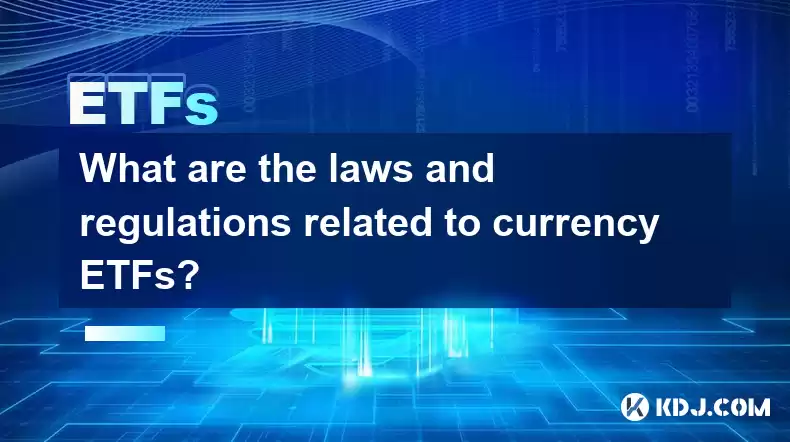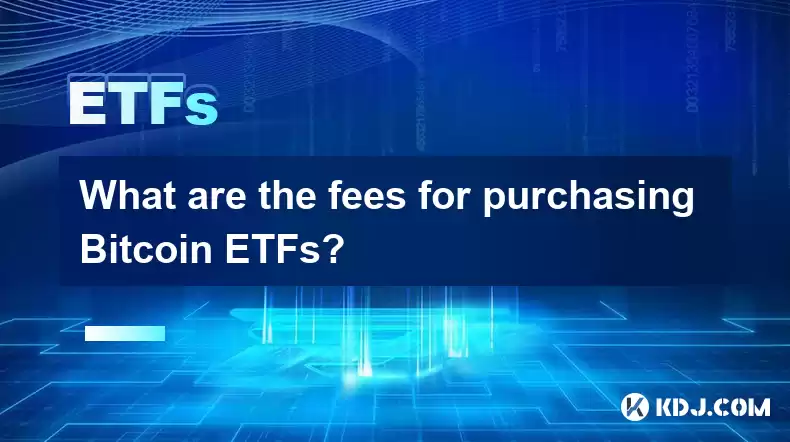-
 Bitcoin
Bitcoin $115200
0.71% -
 Ethereum
Ethereum $3716
6.25% -
 XRP
XRP $3.076
5.28% -
 Tether USDt
Tether USDt $0.0000
0.00% -
 BNB
BNB $766.7
1.87% -
 Solana
Solana $168.5
4.16% -
 USDC
USDC $0.9999
0.00% -
 TRON
TRON $0.3326
1.79% -
 Dogecoin
Dogecoin $0.2093
5.14% -
 Cardano
Cardano $0.7543
4.02% -
 Stellar
Stellar $0.4147
4.43% -
 Hyperliquid
Hyperliquid $38.59
0.71% -
 Sui
Sui $3.594
4.51% -
 Chainlink
Chainlink $17.13
5.12% -
 Bitcoin Cash
Bitcoin Cash $558.9
2.49% -
 Hedera
Hedera $0.2519
1.51% -
 Avalanche
Avalanche $22.91
7.05% -
 Ethena USDe
Ethena USDe $1.001
0.00% -
 Litecoin
Litecoin $120.3
10.01% -
 Toncoin
Toncoin $3.419
-4.46% -
 UNUS SED LEO
UNUS SED LEO $8.921
-0.34% -
 Shiba Inu
Shiba Inu $0.00001249
2.39% -
 Uniswap
Uniswap $9.944
8.41% -
 Polkadot
Polkadot $3.728
3.18% -
 Monero
Monero $308.0
1.78% -
 Dai
Dai $0.9998
-0.02% -
 Bitget Token
Bitget Token $4.389
1.58% -
 Pepe
Pepe $0.00001075
2.71% -
 Cronos
Cronos $0.1397
6.39% -
 Aave
Aave $269.7
3.95%
What are the laws and regulations related to currency ETFs?
The SEC's rigorous oversight of currency ETFs ensures transparency and protects investors from potential risks associated with cryptocurrency investments.
Jan 04, 2025 at 05:35 pm

Key Points:
- Legal Framework for Currency ETFs: Overview of the regulatory landscape governing cryptocurrency-based exchange-traded funds (ETFs).
- Securities and Exchange Commission (SEC) Framework: Examination of the SEC's role in regulating ETF issuance and listing.
- Commodity Futures Trading Commission (CFTC) Framework: Discussion of the CFTC's oversight of futures contracts, including those underlying currency ETFs.
- Investment Company Act of 1940: Analysis of the provisions of the Investment Company Act pertaining to ETF regulation.
- Investment Advisers Act of 1940: Exploration of the obligations imposed on investment advisers offering currency ETFs.
- Anti-Money Laundering and Know Your Customer (AML/KYC) Regulations: Review of the application of AML/KYC regulations to currency ETFs.
Legal Framework for Currency ETFs
Currency ETFs are investment vehicles that track the performance of a basket of cryptocurrencies. They offer investors exposure to digital assets without the need for direct custody or trading. As such, they are subject to various laws and regulations governing traditional securities.
Securities and Exchange Commission (SEC) Framework
The SEC is the primary regulator of securities markets in the United States. Its jurisdiction extends to ETFs, including cryptocurrency-based funds. The SEC's authority stems from the Securities Act of 1933 and the Securities Exchange Act of 1934.
The SEC requires ETF issuers to register their funds with the agency and disclose all material information to investors. This includes the fund's investment objectives, strategies, and risks. The SEC also reviews the underlying assets of ETFs to ensure they meet regulatory requirements.
Commodity Futures Trading Commission (CFTC) Framework
The CFTC has primary jurisdiction over futures contracts and options on futures. This includes futures contracts based on cryptocurrencies. Futures contracts allow investors to speculate on the future price of an asset.
When a currency ETF invests in futures contracts, the CFTC's regulations apply. The CFTC enforces rules governing the trading of futures, including the prohibition of wash trades and manipulation.
Investment Company Act of 1940
The Investment Company Act of 1940 (ICA) governs investment companies, including ETFs. The ICA imposes certain requirements on the structure, operations, and reporting of investment companies.
Currency ETFs must comply with the provisions of the ICA. This includes registering with the SEC as investment companies and disclosing information to shareholders. The ICA also prohibits investment companies from engaging in certain activities, such as speculating with fund assets.
Investment Advisers Act of 1940
The Investment Advisers Act of 1940 (IAA) regulates investment advisers. Investment advisers are individuals or firms that provide investment advice to clients.
Investment advisers who offer currency ETFs to their clients must register with the SEC or a state securities regulator. The IAA requires investment advisers to act in the best interests of their clients. They must also disclose conflicts of interest and provide full disclosure of fees and expenses.
Anti-Money Laundering and Know Your Customer (AML/KYC) Regulations
AML/KYC regulations are designed to prevent money laundering and terrorist financing. These regulations require financial institutions to verify the identities of their customers and report suspicious transactions.
Currency ETFs are subject to AML/KYC regulations. ETF issuers must implement policies and procedures to comply with these requirements. This includes verifying the identities of investors and reporting transactions that may be suspicious.
FAQs
- Are currency ETFs legal?
Yes, currency ETFs are legal in the United States. However, they must comply with all applicable laws and regulations. - Who regulates currency ETFs?
The SEC and the CFTC share responsibility for regulating currency ETFs. The SEC regulates the issuance and listing of ETFs, while the CFTC regulates the underlying futures contracts. - What are the risks of investing in currency ETFs?
Currency ETFs are subject to the same risks as traditional ETFs. These risks include market volatility, fund expenses, and potential tracking errors. Additionally, currency ETFs may be subject to regulatory changes and the risks associated with investing in digital assets.
Disclaimer:info@kdj.com
The information provided is not trading advice. kdj.com does not assume any responsibility for any investments made based on the information provided in this article. Cryptocurrencies are highly volatile and it is highly recommended that you invest with caution after thorough research!
If you believe that the content used on this website infringes your copyright, please contact us immediately (info@kdj.com) and we will delete it promptly.
- Cryptocurrency, Altcoins, and Profit Potential: Navigating the Wild West
- 2025-08-04 14:50:11
- Blue Gold & Crypto: Investing Disruption in Precious Metals
- 2025-08-04 14:30:11
- Japan, Metaplanet, and Bitcoin Acquisition: A New Era of Corporate Treasury?
- 2025-08-04 14:30:11
- Coinbase's Buy Rating & Bitcoin's Bold Future: A Canaccord Genuity Perspective
- 2025-08-04 14:50:11
- Coinbase's Buy Rating Maintained by Rosenblatt Securities: A Deep Dive
- 2025-08-04 14:55:11
- Cryptos, Strategic Choices, High Returns: Navigating the Meme Coin Mania
- 2025-08-04 14:55:11
Related knowledge

What role does SEC play in Bitcoin ETF approval?
Feb 25,2025 at 06:48am
Key Points:SEC's Role in Bitcoin ETF Approval ProcessHistorical Efforts to Establish a Bitcoin ETFSEC's Criteria for Bitcoin ETF ApprovalPotential Imp...

Who is eligible to issue Bitcoin ETFs?
Feb 25,2025 at 11:13am
Key Points:Only regulated financial institutions with the necessary expertise and infrastructure are eligible to issue Bitcoin ETFs.The Securities and...

What impact does Bitcoin ETF have on the market?
Feb 25,2025 at 11:37am
Key Points:Introduction to Bitcoin ETFs and their role in the cryptocurrency marketHistorical development and performance of Bitcoin ETFsPotential ben...

Which investors are Bitcoin ETFs suitable for?
Feb 27,2025 at 04:01pm
Key Points:Understanding Bitcoin ETFsBenefits of Bitcoin ETFsSuitability of Bitcoin ETFs for Different InvestorsAssessing Risk Tolerance and Investmen...

What is the administrative expenses of Bitcoin ETFs?
Feb 26,2025 at 12:24am
Key Points:Administrative expenses are a crucial factor to consider when evaluating Bitcoin ETFs.These expenses can significantly impact the performan...

What are the fees for purchasing Bitcoin ETFs?
Feb 27,2025 at 07:13pm
Key Points:Bitcoin exchange-traded funds (ETFs) are a cost-effective and regulated way to gain exposure to Bitcoin.Fees associated with Bitcoin ETF pu...

What role does SEC play in Bitcoin ETF approval?
Feb 25,2025 at 06:48am
Key Points:SEC's Role in Bitcoin ETF Approval ProcessHistorical Efforts to Establish a Bitcoin ETFSEC's Criteria for Bitcoin ETF ApprovalPotential Imp...

Who is eligible to issue Bitcoin ETFs?
Feb 25,2025 at 11:13am
Key Points:Only regulated financial institutions with the necessary expertise and infrastructure are eligible to issue Bitcoin ETFs.The Securities and...

What impact does Bitcoin ETF have on the market?
Feb 25,2025 at 11:37am
Key Points:Introduction to Bitcoin ETFs and their role in the cryptocurrency marketHistorical development and performance of Bitcoin ETFsPotential ben...

Which investors are Bitcoin ETFs suitable for?
Feb 27,2025 at 04:01pm
Key Points:Understanding Bitcoin ETFsBenefits of Bitcoin ETFsSuitability of Bitcoin ETFs for Different InvestorsAssessing Risk Tolerance and Investmen...

What is the administrative expenses of Bitcoin ETFs?
Feb 26,2025 at 12:24am
Key Points:Administrative expenses are a crucial factor to consider when evaluating Bitcoin ETFs.These expenses can significantly impact the performan...

What are the fees for purchasing Bitcoin ETFs?
Feb 27,2025 at 07:13pm
Key Points:Bitcoin exchange-traded funds (ETFs) are a cost-effective and regulated way to gain exposure to Bitcoin.Fees associated with Bitcoin ETF pu...
See all articles

























































































